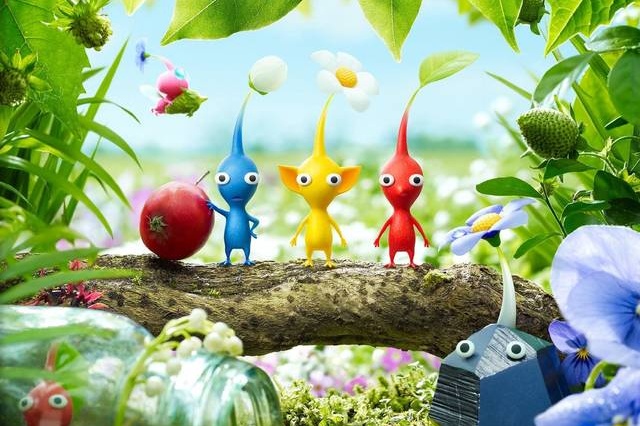
Disc and cartridge reprints for twelve featured Wii U, Wii, and 3DS games will be available at retail in North America for $20 each starting on March 11th.
Among Nintendo’s upcoming slate of reprints is Pikmin 3, a Wii U title that was once a rare find in a physical format. The game sold out quickly upon its launch in 2013, leading to inflated aftermarket prices on Amazon, eBay and other online retailers. Prior to Nintendo’s announcement of a reissue, secondhand copies of Pikmin 3 commonly sold for upwards of $80 in online auctions.
Other Wii U titles joining the Nintendo Selects program in March including the side-scrolling action game Donkey Kong Country: Tropical Freeze, retrogaming compilation NES Remix Pack, and multiplayer platformer Super Mario 3D World.
A number of popular 3DS games are also due for reprints by the end of March, including The Legend of Zelda: Ocarina of Time 3D. Though the game was a popular pick for Nintendo 3DS early adopters in 2011, Ocarina of Time 3D soon became impossible to find at retail due to its initial print run selling out. Nintendo never released a second shipment of cartridges in the years afterward, and as was the case with Pikmin 3, aftermarket prices surged as a result.
Additional copies of Ocarina of Time 3D will hit retail in March alongside 3DS reprints of Donkey Kong Country Returns 3D, Mario Party: Island Tour, and Yoshi’s New Island.
Nintendo will also print more copies of some of its most popular Wii games in March, including Super Mario Galaxy 2, Animal Crossing: City Folk, Donkey Kong Country Returns, and Super Mario All-Stars. All Wii-formatted discs are playable on Wii U consoles via the platform’s backward compatibility feature.
Editors' Recommendations
- Play these 3DS and Wii U games before Nintendo shutters their online features
- As the 3DS eShop closes, devs reflect on a golden age of Nintendo indies
- Grab these Nintendo 3DS games before the eShop closes
- Our 5 biggest predictions for the September Nintendo Direct: Metroid, Zelda, and more
- Nintendo’s Wii Shop Channel and DSi shops are back online


